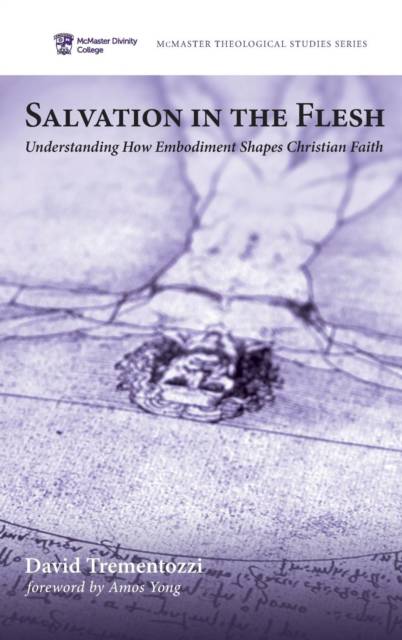
- Retrait gratuit dans votre magasin Club
- 7.000.000 titres dans notre catalogue
- Payer en toute sécurité
- Toujours un magasin près de chez vous
- Retrait gratuit dans votre magasin Club
- 7.000.000 titres dans notre catalogue
- Payer en toute sécurité
- Toujours un magasin près de chez vous
Description
David Trementozzi contends that conservative-traditional Christianity has uncritically adopted an intellectualist (i.e., rationally-driven) view of faith in its understanding and practice of salvation. Throughout, he maintains that an intellectualist soteriology should be rejected because it prioritizes the rational over other behavioral and affective aspects of faith. An intellectualist rendering of salvation is incomplete because human experience is neither abstract nor gnostic--it is embodied and experientially relevant. An intellectualist soteriology simply cannot account for the dynamic and transforming possibilities of saving grace. Salvation in the Flesh offers an innovative perspective on the embodied nature of faith and the centrality of the Holy Spirit in the Christian doctrine of salvation. Drawing from the cognitive neurosciences and psychology, Trementozzi argues for a holistic awareness of cognition to better inform an embodied understanding of faith. In dialogue with the cognitive sciences, he appropriates Jonathan Edwards' theology of religious affections, early church practices, and pentecostal spirituality to highlight the soteriological significance of orthodoxy, orthopraxy, and orthopathy for a renewal soteriology of embodiment. In doing so, Trementozzi offers a vision of salvation that more thoroughly accounts for the multifarious ways God's saving grace interacts with human flesh and blood. ""Trementozzi articulates a sustained argument for a holistic soteriology in place of the evangelical (and Pentecostal) tendency to intellectualize faith and marginalize affective and behavioral dimensions of faith. . . . Thus, it makes an important contribution to the fields of evangelical and Pentecostal theology as well as to contemporary systematic and constructive approaches to theology."" --Steven M. Studebaker, Associate Professor, McMaster Divinity College ""David Trementozzi grants us a long overdue pneumatological soteriology that places its accent right where it belongs--embodiment. If the reader's notion of faith or of salvation starts with rational acceptance of theological propositions, then read this excellent book, and get ready to be challenged!"" --Frank D. Macchia, Professor, Vanguard University of Southern California ""Salvation in the Flesh issues a passionate plea to embrace a holistic explanation of the Christian faith that accounts for the integration of intellect, behavior, and affections. Critiquing the lack of an embodied paradigm of salvation in conservative Christianity, Trementozzi invites to a renewal of soteriology by bridging the distance between orthodoxy, orthopraxy, and orthopathy. . . . This book casts a vibrant vision of salvation as embodied, ongoing, and social, creating new vistas for Christian mission, evangelism, theology, and discipleship."" --Wolfgang Vondey, University of Birmingham, United Kingdom ""Flesh, bodies, and physicality matter. At least they should to Christians. And yet sometimes overt, more often covert, claims by Christians undermine the importance of flesh. A big part of the problem is a faulty or at least limited view of salvation. David Trementozzi details the history of the problem, offers a solution, and calls us back to what matters: salvation that includes flesh. It makes my body want to jump and shout!"" --Thomas Jay Oord, Professor, Northwest Nazarene University David Trementozzi is Dean of Graduate Studies and Professor of Theology at Continental Theological Seminary in Sint-Pieters-Leeuw, Belgium. David and his wife, Emily, live in Brussels with their three children: Judah, Kaleb, and Halle.
Spécifications
Parties prenantes
- Auteur(s) :
- Editeur:
Contenu
- Nombre de pages :
- 330
- Langue:
- Anglais
- Collection :
- Tome:
- n° 7
Caractéristiques
- EAN:
- 9781498242905
- Date de parution :
- 01-02-18
- Format:
- Livre relié
- Format numérique:
- Genaaid
- Dimensions :
- 152 mm x 229 mm
- Poids :
- 612 g







